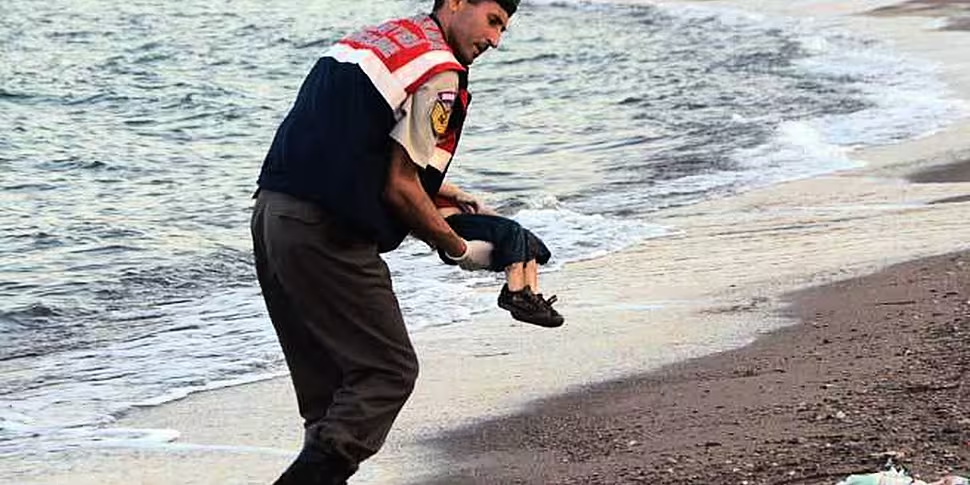One year after the death of a Syrian boy whose image prompted a global outcry about the refugee crisis, governments are facing calls to boost action to help asylum seekers.
Three-year-old Alan Kurdi died when an inflatable boat his family were fleeing Syria in capsized.
Images of his lifeless body on a beach in Turkey made headlines across the world.
His mother, Rehana, and brother Galib also died while trying to cross into Europe from Turkey.
Trócaire say 7,000 people have died in the Mediterranean Sea since the beginning of 2015.
In July, negotiations ahead of a September United Nations refugee and migrant summit put plans for a 'Global Compact on Refugee Responsibility-Sharing', proposed by UN Secretary General Ban Ki-moon, on hold until 2018.
Colm O’Gorman, executive director of Amnesty International Ireland, said: "As if the image of Alan's lifeless body that shamed the world were not enough, one year later world leaders are still refusing to act.
A sand sculpture pays tribute to three-year-old Syrian boy Aylan Kurdi, whose image hammered home the Syrian migrant crisis to the world | Image: Uncredited / AP/Press Association Images
"Tragically, states have already passed up on a chance to address the crisis at a UN Summit on September 19th, which is set to fall far short of what is needed.
"We now face the prospect of another conclave of world leaders fiddling with hollow declarations while more children suffer.
"Until wealthy countries take more responsibility for the crisis unfolding before them, and take in a fairer share of the people fleeing war and persecution, they will be condemning thousands more children to risk their lives in desperate journeys or being trapped in refugee camps with no hope for the future," he added.
Reiseal Ní Cheilleachair, humanitarian policy advisor for Trócaire, said bureaucracy has been getting in the way of change.
"Europe has been gradually closing borders - and even if those boarders aren't physically closed, the bureaucracy is so difficult for people that they just can't get through," she told Newstalk Breakfast.
"The most striking thing for me was that people came with hope...and then gradually things got more complex.
"If there was greater political will from member states - Ireland included - there would be more people who would be able to be refugees in different countries."










